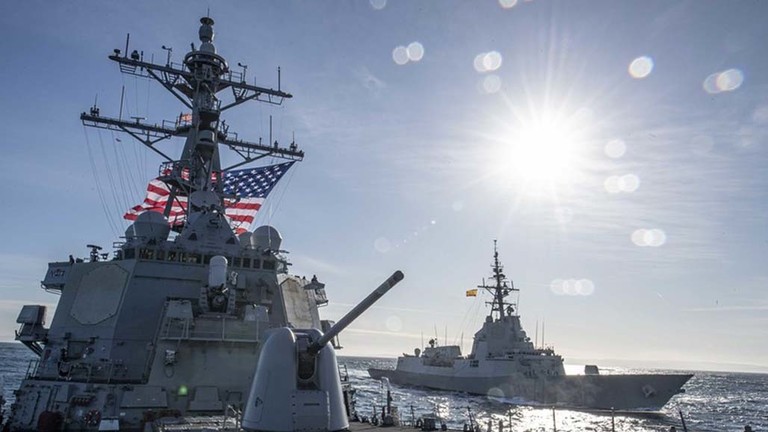The recent escalation in Yemen has captured global attention as the United States intensifies its military operations against Houthi forces. In a bid to maintain freedom of navigation in the Red Sea, U.S. naval and air forces have conducted strikes targeting key Houthi-controlled sites. This article will explore the implications of these actions and the broader geopolitical context surrounding them.
Context of the Strikes: Navigating Turbulent Waters
The U.S. military's operation comes after nearly a year of Houthi interferences with Israeli and Western shipping in the Red Sea. The Houthis, a Shiite militant group claiming to represent the Yemeni government, have been increasingly aggressive, utilizing missile strikes and drone attacks to disrupt maritime operations. Their actions appear to be a strategic effort to pressure Israel to halt its military actions in Gaza.
Targeting Houthi Capabilities
On Friday afternoon, U.S. Central Command (CENTCOM) reported that their forces targeted 15 specific Houthi sites, including critical military installations in the capital city of Sanaa and the port of Hodeidah. The U.S. military characterized these strikes as a necessary measure to protect international waters and ensure safe passage for coalition and merchant vessels.
Unnamed U.S. officials revealed to the Associated Press that these strikes specifically aimed at “weapons systems, bases, and other military equipment.” Yemeni media outlets further reported multiple explosions in various regions, including Hodeidah airport and the military base at Katheib.
Historical Context: A Year of Escalation
This recent bombing marked the first U.S. operation against the Houthis since June. The situation in Yemen has escalated significantly since last October, when the Houthis began firing missiles and drones at merchant ships, initially targeting those linked to Israel but eventually expanding their operations to include U.S. and UK vessels. This shift followed the airstrikes conducted by the U.S. and UK in January.
The U.S. Navy has sought to deter Houthi aggression by deploying several warships in the region as part of “Operation Prosperity Guardian.” However, these efforts have been met with limited success, leading many Western shipping companies to bypass the Suez Canal altogether, rerouting their vessels around the African continent.
Broader Implications: Regional Tensions and Iranian Influence
The Houthis have claimed responsibility for numerous attacks on international shipping and have released videos showcasing their capabilities, including striking the Panamanian-flagged tanker Cordelia Moon in the Red Sea. The group’s growing military strength raises concerns about their connections to Iran, which Washington has accused of providing support. While the Houthis deny these claims, the regional tensions continue to escalate.
In a related development, Iran recently launched a missile barrage against Israel in retaliation for the killings of key figures within Hamas and Hezbollah. This broader context complicates the situation, suggesting that the Houthis may be operating within a larger framework of Iranian geopolitical strategy.
Conclusion: A Crucial Moment in U.S.-Middle East Relations
As the U.S. military ramps up its operations against Houthi forces, the stakes in the Red Sea and the broader Middle East grow increasingly high. The combination of Houthi missile strikes and U.S. military responses paints a picture of a rapidly evolving conflict, one that underscores the delicate balance of power in the region.
Moving forward, the world watches closely as the U.S. navigates these turbulent waters, striving to protect international interests while managing the complex dynamics at play in Yemen and its surrounding areas. The outcome of this confrontation could have far-reaching consequences, impacting not only regional stability but also global maritime security.
I'm reaching out to ask for help in raising funds to purchase a modest, dependable used car. Having a vehicle would not only restore my independence but also allow me to engage more actively in my community and maintain essential aspects of daily living.
Help Chris Regain Independence with a Reliable Vehicle at GoGetFunding



